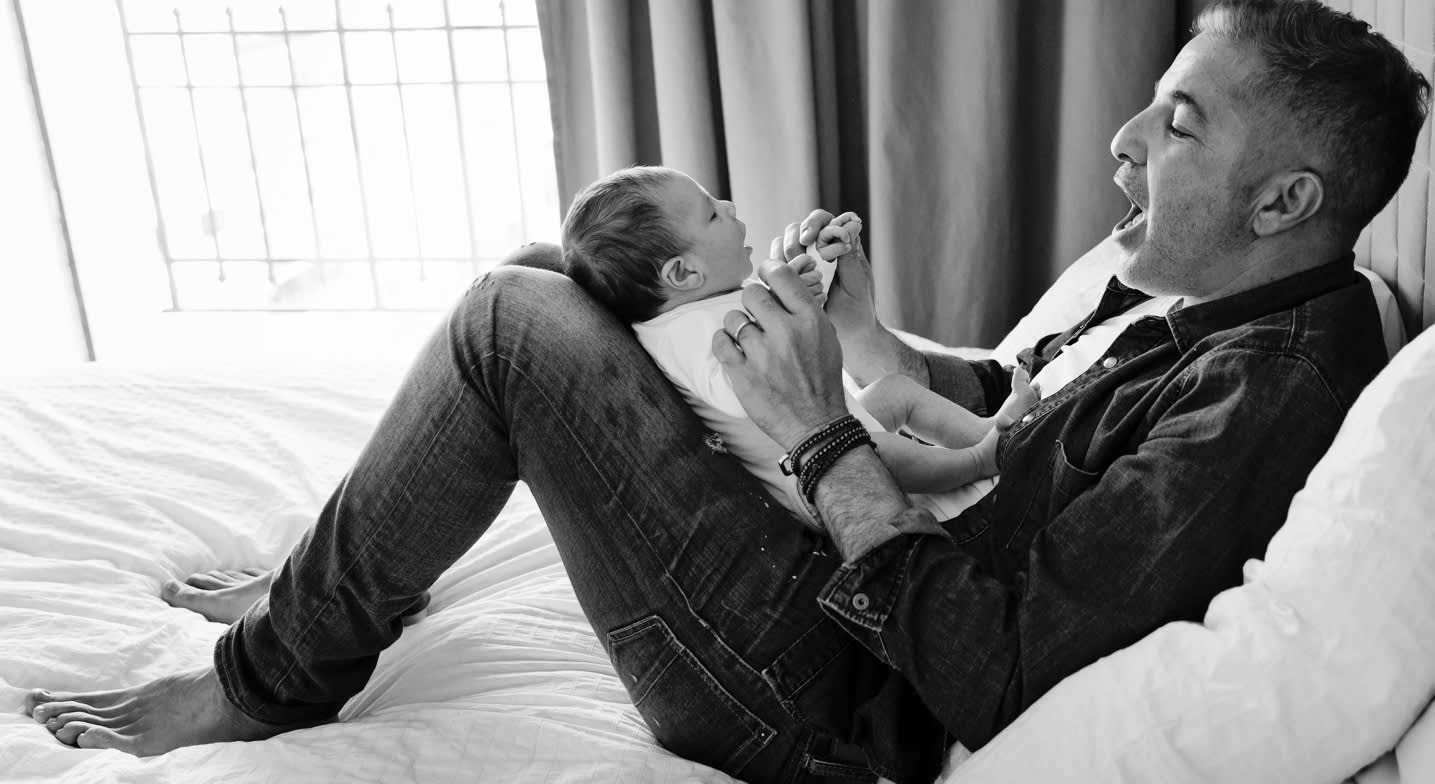When your baby starts to use the touchscreen swipe motion on everything she sees, from photos on the wall to words on a page, is it a sign that you aren’t reading enough to your child?
Could be, say experts who are starting to speak to infants’ need to hear their parents’ voices. In fact, the latest researchsays we should all be putting down the electronics and reading books to our babies from pretty much the moment they are born.
While your newborn doesn’t understand what you’re saying, of course, she does begin to pick up the rhythm, tones, and inflections of the reader’s voice, says Dr. Pamela High, who directs the Division of Developmental-Behavioral Pediatrics at Rhode Island Hospital/The Warren Alpert Medical School of Brown University.
Infants begin to understand written language when they hear adults read stories to them.
By hearing the very sound of a parent or caregiver’s voice very early, babies begin to understand that different words have distinct sounds that can make people laugh, cry, or get all other kinds of emotional. And, according to the National Institute for Literacy, infants begin to understand written language when they hear adults read stories to them and see adults reading and pointing out objects that have names. These early experiences with spoken and written language set the stage for children to become successful readers and writers.
“Science tells us that children learn about words and reading from a very early age and there’s an emotional connection that happens when we read aloud to babies,” Dr. High added. “It’s harder to make that emotional connection when we are sucked into the electronic world.”
Recent research shows that the more words a baby is exposed to, the better prepared he is to start reading on his own — and when he does, he tends to know more language. A studyin the Journal of Developmental and Behavioral Pediatrics found that reading to babies in NICU also helped parents develop the same feelings of intimacy that parents of healthy babies cultivate in the days and weeks after a baby’s birth.
“The very act [of reading] itself is calming for both baby and parent, and a potent way to help parents and caregivers bond,” said Dr. High.
Babies whose parents spoke to them a lot scored higher on standard tests when they reached age three than children whose parents weren’t as verbal.
The Academy of Pediatrics Leadership developed a policy statement that recommends that pediatric providers advise parents of young children that reading aloud and talking about pictures and words can strengthen language skills, literacy development, and parent-child relationships.
“Your baby begins connecting reading a book to your talking and your voice and with laptime and facetime and feeling close to you and, ultimately, feeling safe,” said policy co-author Dr. Perri Kass, a professor of Journalism and Pediatrics at New York University and the national medical director of Reach Out and Read. “There’s no screen in the way blocking those connections. This helps them develop on so many levels, and books become connected with safety, and mom’s or dad’s voice is a big part of that connection.”
One study found that babies whose parents spoke frequently to them scored higher on standard tests when they reached age three than children whose parents weren’t as verbal.
In August 2015, the journal Pediatrics published a study that used functional magnetic resonance imaging to study brain activity in 3-to-5-year-old children as they listened to age-appropriate stories. The researchers found differences in brain activation according to how much the children had been read to at home.
Studies have also shown that children who were read to as newborns have a larger vocabulary, as well as more advanced mathematical skills, than other kids their age.
“Babies need language and stimulation, and adult caregivers who see that they are interested in that and are able to help explain the world to them can enrich their lives greatly,” Dr. Kass said.
Not to mention enrich the lives of the caregivers. After all, when it comes to getting baby’s attention, would you want to come in second to a smartphone?







